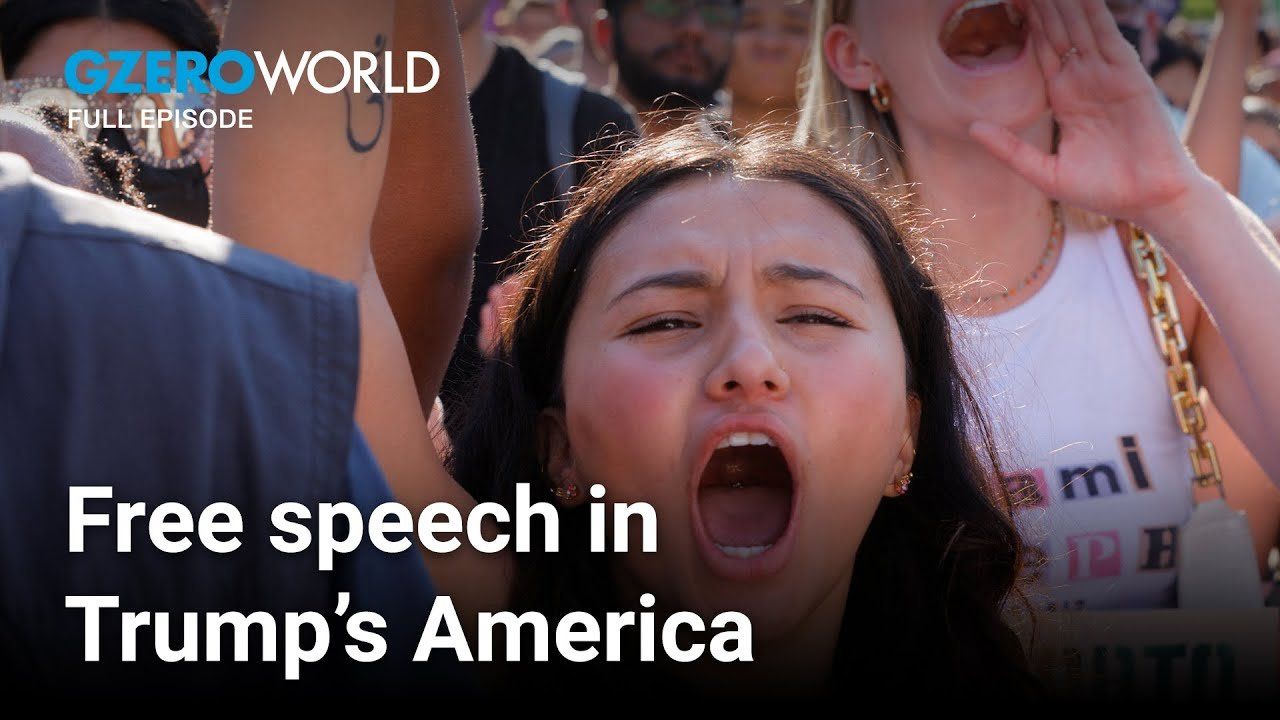May 05, 2025
In the United States, the right to free speech is enshrined in the Constitution, but that doesn’t mean everyone agrees on what it looks like in practice. On GZERO World, Ian Bremmer opens with a landmark case: when neo-Nazis won the right to march through a Holocaust survivor community in Skokie, Illinois. The decision was controversial but helped define modern free speech as “ugly, uncomfortable, and messy,” yet fundamental to American democracy. Today, that foundational idea is once again being tested—on college campuses, in immigration courts, and in the rhetoric of both political parties.
Conservative legal scholar Ilya Shapiro argues that institutions once devoted to open inquiry are increasingly undermining that mission. “Universities have forgotten their basic responsibilities,” he says, citing unequal rule enforcement and what he calls an “illiberalism” that predates Trump but has intensified with political polarization. Shapiro supports the Trump administration’s aggressive scrutiny of elite universities but warns that some immigration-related free speech crackdowns risk overreach: “I'd prefer the administration go after clear immigration violations, not rely on vague designations like ‘harmful to foreign policy.’”
Meanwhile, New York Times reporter Jeremy Peters warns that the Trump administration’s tactics may do more harm than good. “Rather than executing clean policies that defend free speech,” he says, “they’re using blunt force to try to deport people who didn’t do anything terribly wrong.” Peters points to a growing “chilling effect,” especially among international students, who are now being advised to self-censor for fear of legal consequences. Both guests agree that university culture has played a role in the current crisis, but they differ sharply on whether the government’s response is upholding or threatening the First Amendment.
In America’s culture wars, free speech is no longer just a right—it’s a weapon, and both sides are wielding it.
GZERO World with Ian Bremmer, the award-winning weekly global affairs series, airs nationwide on US public television stations (check local listings).
New digital episodes of GZERO World are released every Monday on YouTube. Don't miss an episode: subscribe to GZERO's YouTube channel and turn on notifications (🔔).GZERO World with Ian Bremmer airs on US public television weekly - check local listings.
More For You
- YouTube
In this Quick Take, Ian Bremmer breaks down the growing tensions between the US and Iran, calling it "the next area of potential large-scale conflict where President Trump is interested in changing the facts on the ground."
Most Popular
A flood victim stands at her flooded home after weeks of heavy rainfall in Boane District, Maputo, Mozambique, January 19, 2026.
REUTERS/Amilton Neves/File Photo
392,000: The estimated number of people displaced across Mozambique by recent rain-induced floods. Severe flooding in the southern African nation, as well as in South Africa and Zimbabwe, has killed over 100 people.
© 2025 GZERO Media. All Rights Reserved | A Eurasia Group media company.
